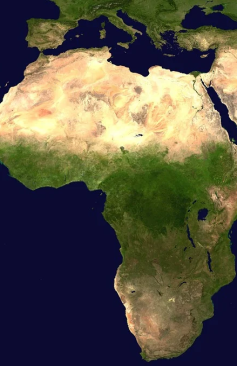Bridging the Gaps that Exist in the High Seas Governance through Implementing the Agreement under the Convention on the Law of the Sea: South Africa’s Perspective
By Michael Kabai
Published on June 30, 2012

South Africa’s position on how to bridge the gaps that exist in the high seas governance through implementing the agreement under the Convention on the Law of the Sea (“Convention”) is well known and is restated in every meeting as it is customary at the UN to repeat one’s position.
The impression has often been created that there are two groups that cannot agree. The one group, seeks to tighten up environmental regulation while the other group seeks to secure agreement on the applicability of the common heritage of mankind principle to the marine genetic resources of the Area. This ignores a third group, namely that group which has an interest in seeing both of these goals achieved. South Africa would count within that category.
Moreover, South Africa has stressed over and over again that it sees these objectives as inextricably linked. In other UN meetings South Africa has stressed the link between the common heritage of mankind and the conservation and preservation of the marine environment as follows:
“the common heritage of mankind principle is not solely about benefit sharing. [It] is just as much about conservation and preservation. The principle is about solidarity; solidarity in the preservation and conservation of a good we all share and therefore should protect. But also solidarity in ensuring that this good, which we all share, is for all our benefit”.
To be even clearer than South Africa has been in the past, set against the applicability of the common heritage of mankind is the freedom of the high seas – which, has its origins in the works of Hugo de Groot. The freedom of the high seas, without question, militates against effective protection and preservation of the marine environment. The effect of this Grotian principle is in essence to re-enact Hardin’s tragedy of the common in the high seas by allowing states (and vessels under their jurisdiction or control) to act as they please on the high seas. The principle may apply to the high seas – with some constraints – but South Africa does but accept any attempt to extend its application to the Area.
While South Africa falls in the group that seeks both objectives, environmental protection and common heritage of mankind, South Africa recognises that given the power dynamics at the UN, the common heritage of mankind is at a severe disadvantage and that any agreement on the preservation aspect without an agreement on the common heritage of mankind would spell doom for the prospects of the latter. It is for this reason that, like others, that South Africa has been proposing a package deal. A package deal that would include measures for the preservation and conservation of marine biodiversity, including through Marine Protected Areas (MPAs) and Environmental Impact Assessments (EIA) as well as provisions on the management of marine genetic resources on the seabed, including aspects relating to benefit sharing. South Africa has, for some time, called for an implementing agreement to encapsulate such a package.
Nonetheless, South Africa recognises that there is much work that is required before a deal can be clinched. It is for this reason that starting in the Ad Hoc Informal Working Group to study issues relating to the conservation and sustainable use of marine biological diversity beyond areas of national jurisdiction meeting of 2008, South Africa has been calling for a diplomatic conference to negotiate an instrument. Again, however, South Africa recognises that not all states are convinced of the need for a “package deal” and therefore a need for a forum to negotiate an implementing agreement. South Africa, consequently warmed to the idea of an intergovernmental conference under the auspices of the United Nations with a view to promoting effective implementation of the Convention, much like the conference that was called for in paragraph 50 of Chapter 17 of Agenda 21. Such a call does not, in South Africa’s view, prejudice any state’s position with regards to the content of an implementing agreement or even the necessity of an implanting agreement.
The time to make progress on these issues is now. If the General Assembly, which is the appropriate forum for dealing with ocean governance and regulation issues, does not take action on this matter soon, then other forums will attempt to do so – with consequences that may threaten the integrity of the Convention. There is no doubt that it is clear that the one of the last few texts of the Nagoya Protocol on Access and Benefit Sharing included in the scope of application of the Protocol, areas beyond national jurisdiction. It is obvious that there are some states that are keen to, in the context of the multilateral benefit sharing mechanism of the Nagoya Protocol, re-insert high seas areas within the scope of the Protocol. If the General Assembly does not act expeditiously on this, then we risk emboldening other forums to take the lead.
During the Ad Hoc Meeting held from 07 to 11 May 2012 South Africa pointed out the need to find a solution to the question of marine biodiversity in areas beyond national jurisdiction, including the question of sharing of the benefits from exploitation of marine genetic resources.
For that reason, South Africa stressed that the issues of conservation and benefit sharing are linked by the concept of the common heritage of mankind.
South Africa also reminded the meeting of the gaps that exist in high seas governance, including conservation areas. South Africa indicated that the gaps and uncertainties emphasize the need for an implementing agreement to the Convention to give effect to the common heritage of mankind. For that reason, South Africa has supported paragraph 80 of the United Nations Conference on Sustainable Development zero draft of the outcome document.
South Africa was of the view that paragraph 80’s inclusion in the outcome document signified the importance that member states of the UN attach to the issues relating to the conservation and sustainable use of marine biological diversity beyond areas of national jurisdiction. South Africa also notes that the current regime intended to address these issues has failed. It was, therefore, South Africa’s view that the current regime regulating issues of marine areas beyond national jurisdiction has been unsuccessful in guaranteeing realisation of the state’s obligations to conserve and manage marine resources and protecting the environment in areas beyond national jurisdiction. As a result, South Africa’s position was that paragraph 80 underpinned the point that the gaps in the current regime relating to conservation and sustainable use of marine biodiversity on the high seas should be bridged.
Finally, South Africa pointed out that it fully supports the efforts to bridge the existing gaps and to improve the current ocean management in order to provide for an integrated, equitable and accountable framework, including the establishment of a new implementing agreement under the Convention, for the conservation and sustainable use of marine biodiversity in areas beyond national jurisdiction.
The Author

Michael Kabai, LLB (UNIN), LLM (UNISA).
The author is State Law Adviser (International Law) in the Office of the Chief State Law Adviser (International Law) in the Department of International Relations and Cooperation of the Republic of South Africa.
The views expressed herein do not necessarily reflect the views of the South African Department of International Relations and Cooperation or the South African Government.
Article picture: Pixabay


